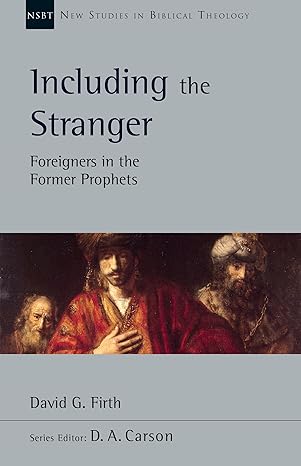A Brief Book Summary from Books At a Glance
by Steve West
About the Author
David Firth is Tutor in Old Testament at Trinity College, Bristol, and research fellow of the University of the Free State, South Africa. He has authored and edited various commentaries and books on Old Testament studies.
Table of Contents
1 Concerning Foreigners and the Former Prophets
2 The Book of Joshua: The Identity of the People of God
3 The Book of Judges: The People through Whom Yahweh Works
4 The Books of Samuel: Foreigners as the Means of Assessing Israel
5 The Books of Kings: Foreigners Beyond the Borders of Israel
6 Foreigners and the People of God
Summary
Chapter 1: Concerning Foreigners and the Former Prophets
It can often be difficult to identify what makes someone a foreigner, and various cultures seem able to both classify all foreigners together and also to differentiate them into groups that are either desired or undesired. Often, it is the speaker who identifies someone as part of the “us” or “other,” and this is not always based on race. Given personal experience and context, a “foreigner” can sometimes see things in the biblical text that people in the dominant culture miss. In Scripture, the Former Prophets provide a narrative look at foreigners which goes beyond the ethical minimums enjoined in the Law. There are numerous engagements with foreigners in this corpus, and this reality makes the Former Prophets an excellent place to study this theme. The narrative text helps reveal who is included and who is excluded from Israel, along with the grounds for that identification. In our contemporary church culture, we need to study the Former Prophets because they are often misunderstood as being highly negative towards foreigners; they are sometimes seen as endorsing bigotry, violence, and genocide. It is necessary to read the narrative for its theological and ethical norms, but this requires careful interpretation. Oftentimes the narrator does not evaluate the story, since the expectation is that the reader has the maturity to discern what is good and evil in it. Narrators often tell enough to get the readers’ attention and to cause them to reflect, but they do not tell everything. . . .
[To continue reading this summary, please see below....]The remainder of this article is premium content. Become a member to continue reading.
Already have an account? Sign In
